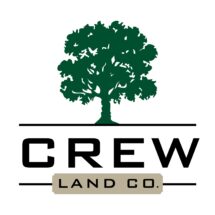Questions to consider when buying land. When embarking on a significant investment, such as purchasing rural land, conducting thorough research, and seeking information to ensure you make an informed decision is essential. Even if you lack the expertise as a real estate agent, it can be challenging to identify crucial factors or pose the appropriate inquiries when assessing rural land. However, fret not! The knowledgeable professionals at CREW Land Co. can assist you by outlining the most vital questions to ask before acquiring land.
The key to a successful land purchase is having the correct information. When buying property or real estate, gathering as much information as possible is crucial. However, not all information is equally important. While it’s great to gather lots of details about the rural land you’re interested in, a few key questions are more important than others. By asking these important questions, you can ensure you’re making the best investment and not wasting your money.
Are there any environmental issues on the land?
It’s important to inquire about potential environmental hazards on the land you’re considering. Unless buyers ask specifically, sellers are not obligated to disclose this information in most states. It’s best to consult an expert and ask if they have identified any environmental hazards, as they may only sometimes be visible. Understanding these hazards can help you assess their impact on the property and determine if any remedial actions are required.
What is the zoning of the property, and are there any building restrictions?
Checking the zoning of the land is crucial when purchasing it. Make sure that you check if the property is zoned for your specific purposes. If you plan to construct buildings on the land, it’s important to be aware of any building restrictions or regulations that may apply. Understanding the zoning and restrictions will help determine if the land suits your intended use.
How is the property accessed?
Consider how you will access the property. Access is necessary because it determines convenience and value. If the land has a frontage road, it adds value and guarantees direct access. However, if access to the property relies on a deeded access, it is accessible only through a road owned by another landowner (e.g., a neighbor); it can be more complex. In such cases, ensure that all access details are clearly outlined in the contract and agreed upon before finalizing the purchase.
What are the rights and titles associated with the land?
When buying land, it is crucial to pay attention to title issues. Never proceed with a land purchase if there are problems with the title. Protect your rights as a buyer by investigating if the title is clear or if there are any disclosures the seller should make. Hiring a title lawyer or conducting a title check can provide valuable information. Additionally, consider if you will obtain any specific rights to the land, such as road access, mineral rights, or development rights.
Are there any easements on the land?
It’s important to determine if there are any easements on the land you intend to purchase. If you have an easement on your property, it means that you must allow others to use the land as well, including conservation groups, neighbors, or any other party that holds an easement on the property. Understanding the existence and implications of easements is vital when considering the use and enjoyment of the land.
What are the tax obligations associated with the land?
Including a question about property taxes in your land-buying checklist is essential. Understanding the ongoing costs of owning the property will help you budget accordingly. Additionally, explore the possibility of tax exemptions that may be available based on specific land uses. For instance, certain tax exemptions can be obtained for agricultural or timber activities and for making improvements or developing the land. Investigating these opportunities can potentially lead to tax benefits aligned with your intended use of the land.
What utilities are provided on the land?
Nowadays, most people prefer to have access to basic utilities instead of living entirely off the grid. Determining if water, sewage, electricity, and other necessary utilities are readily available on the land you’re purchasing is crucial. Understanding the availability of these utilities will help you plan and budget accordingly, especially if additional infrastructure or connections are required.
What are the property lines and neighboring properties like?
When buying land, it’s important to clarify the property lines. Ensure that the boundaries are well defined to avoid potential disputes with neighbors over boundaries in the future. Additionally, consider the neighboring properties. Will your intended use of the land align well with the surrounding community? Consider future developments in the area when making plans for the land.
When it comes to buying land, it presents a remarkable opportunity and can be a great investment. However, it’s crucial to ensure your success by asking the right questions. Consult with a knowledgeable land professional and inquire about the following when buying land:
Asking important questions will give you a comprehensive understanding of the land you’re considering. Once you receive answers that satisfy your inquiries, you can proceed with confidence. With our expertise in land, we can provide you with valuable information and guidance. Contact us today for a land consultation or for your dream land purchase in Mississippi or Alabama. Let CREW Land Co. help you find the perfect property!
